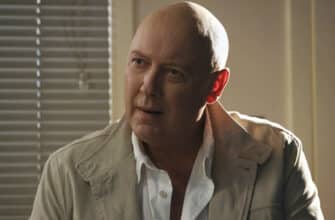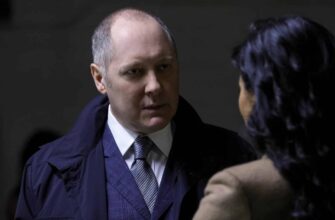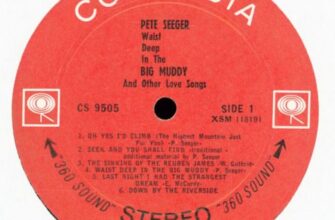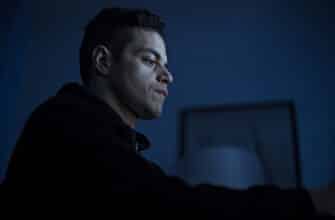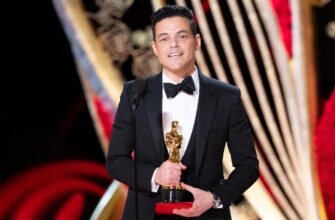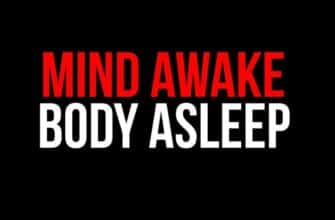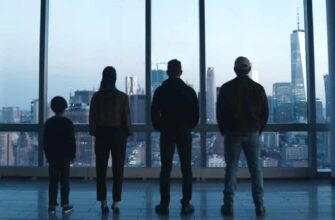Images Courtesy of USA Network and 20th Century FOX
Let’s clear up a couple of things before I even get started. This theory has not been confirmed by anyone associated with Mr. Robot or USA Network. This is just a theory that has been floated by viewers after the conclusion of episode 2. For the uninitiated, Tyler Durden is the brilliant character portrayed by Brad Pitt in the movie, “Fight Club”. If you have not seen Fight Club and have it on your to-do list, I strongly suggest you heed the SPOILER ALERT warning here.
Warning: Spoiler Alert
On the surface, an argument can be made between Mr. Robot and Fight Club being similar as they both deal with the notion of taking down the national financial system. As a way of liberating the American people from the shackles of debt. The idea that we are slaves to our own need for material things and the control those institutions have over us. Mr. Robot takes that notion a step further by introducing the dependency we have on social media and technology in general. The large bottom line being that we really don’t NEED either one. But both serve as a means to control us.
Tyler Durden has a very real anger toward this dependency society has forced. As if he’s the only sane person walking amongst a world of lemmings. Droves of people living a miserable existence that comes with the pursuit of possessions. Such an anger towards it that it propels him to take things way beyond the typical level of his own anger. Instead, he mounts a movement to do something about it. Disregarding the consequences or even those who may be hurt in the process. This is a war worth winning at almost any cost.
Tyler Durden: I see all this potential, and I see squandering. An entire generation pumping gas, waiting tables; slaves with white collars. Advertising has us chasing cars and clothes, working jobs we hate so we can buy shit we don’t need. We’re the middle children of history, man. No purpose or place. We have no Great War. No Great Depression. Our Great War’s a spiritual war… our Great Depression is our lives. We’ve all been raised on television to believe that one day we’d all be millionaires, and movie gods, and rock stars. But we won’t. And we’re slowly learning that fact. And we’re very, very pissed off.
The ballad of Elliot Alderson is not all that different. From the very beginning, Elliot loathes ‘society’. The small difference is that Elliot does not discern the difference between possessions and society. Elliot sees all of it as the devil on your shoulder. From the jobs we work, to make the money, that affords us the ability to buy the things we don’t need. If that was where it ended, it would be a much clearer parallel. Elliot takes it a few steps further. Including social media, the celebrities we view as heroes despite evidence to the contrary, the time and energy we spend on our technical devices cluttering each other with benign information that doesn’t improve our lives, and so on.
Elliot Alderson: Is it that we collectively thought Steve Jobs was a great man, even when we knew he made billions off the backs of children? Or maybe it’s that it feels like all our heroes are counterfeit. the world itself is just a big hoax. Spamming with our running commentary of bullshit masquerading as insight, our social media faking as intimacy. Or is it that we voted for this? Not with our rigged elections, but with our things, our property, our money. I’m not saying anything new. We all know why we do this, not because Hunger Games books make us happy but because we wanna be sedated. Because it’s painful not to pretend, because we’re cowards. F society.
Now one small difference is how Elliot perceives himself as a relative Robin Hood. In some small measure taking down people electronically who deserve to be taken down for the betterment of those they influence. Whereas Durden, almost from the beginning has his focus set on a massive overthrowing of the system. In some way, Elliot sees himself as just a guy trying to do what he can to make things better. That is until the end of the pilot episode when we hear him think:
Elliot: Sometimes I dream about saving the world. Saving everyone from the invisible hand.
Another striking difference between the two characters is the sympathetic nature (or not) of those two characters. From the very first moment, Elliot Alderson is very much a sympathetic character. You the viewer, may not suffer from social disorders. Don’t have an addiction to a substance used to take the edge off of depression. Maybe you don’t work for a company that embodies that thing you hate most in the world. But everyone can relate on some level to his pain, his frustration, and his desire to make things better, especially for those who you care about.
Conversely, Tyler Durden is not a sympathetic character. He is a cool character, but not a sympathetic one. Almost everything he does is abrasive. While the reason makes sense to most, the means do not. Most of us wouldn’t insert pornographic frames into a kids movie for the fun of it. We would bomb buildings or infiltrate a fundraiser to make a point. There is almost nothing about Durden’s actions that embody anything the average viewer would ever consider doing. And that, is the point. That’s what makes his character what it is. He is willing to step over lines that we are not. Again, Tyler Durden is a cool character. Enjoyable to watch. But he is not a sympathetic character.
Now in order to tie those two together we have to make some assumptions about Elliot and his character development that we may not see for a few episodes. The elephant in the room is obvious. From what you know of Elliot to this point, vs. what Mr. Robot wants to do, how far is Elliot willing to go? He’s already stated that he won’t kill anyone. If push comes to shove, would he stand firm on that conviction or would he eventually transition into believing in the sense of the greater good? We’ll get back to that shortly.
So far, this entire theory is built on conceptual parallels. For anyone who saw this parallel before reading this article, its clear we need to observe the visual evidence. Fight Club is able to show Tyler Durden interacting with the protagonist in the real world. Or so we thought. The beauty of Fight Club comes at the end. The conclusion to the movie illustrates very clearly that despite what you thought for the previous two hours, Tyler Durden is not real. Tyler Durden was never in any of the scenes we thought he was. Tyler Durden is a figment of the protagonist’s imagination. The alter ego that lies dormant in the Narrator’s mind. The person he wishes he could be.
Here’s where Mr. Robot comes into the equation. In Fight Club we have the Narrator and Tyler Durden. In USA Network’s “Mr. Robot” we have three participants. Mr. Robot (Christian Slater), Elliot Alderson, and what I have dubbed “Inner” Elliot Alderson. Mr. Robot the character seems just as real as Tyler Durden did. We see Mr. Robot talking to Elliot on the train. At the abandoned store in Coney Island. On the Ferris Wheel. Sitting on the pier. We even see him in the promo for episode three at the All Safe offices. But ask yourself this very simple question. Has anyone other than Elliot acknowledged Mr. Robot’s existence? Every time they speak, no one else is in the shot. And if they are in the shot, they don’t acknowledge Mr. Robot. Believe me, I went back and re-watched specifically for this. At no point does anyone ask Mr. Robot a direct question, move out of his way, call him by any name at all. In this sense Mr. Robot is the Tyler Durden of this analogy.
Now to further complicate the analogy. Before we even really get to know Mr. Robot, we are firmly introduced to “Inner” Elliot. Elliot talks to him repeatedly. This isn’t an inner monologue. This is Elliot talking to himself as if Inner Elliot is going to respond. Things like, “Are you seeing this?” and “You’re in this too, time to start doing your part.” There is a sense by the end of the second episode that Inner Elliot is the take action part of Elliot’s personality that the real him wishes he were. Inner Elliot is what decided that Ron of Ron’s Coffee, Michael Hanson, and Fernando Vega had to be taken down. So in this case, Inner Elliot is the Tyler Durden of the analogy.
With these lines drawn between characters and show vs. movie, that leaves us with the final and most telling question. And if you are following this logic, you have already answered the question. Is Elliot Alderson actually Mr. Robot? Elliot and Inner Elliot can be halves of the same whole. But then where does that leave Mr. Robot? If he doesn’t actually exist in reality he has to exist somewhere. Insert the late nights and drug cocktail that real Elliot uses to keep his balance of sanity. In the opening scene Elliot admits that he is a tech for a cyber security firm by day and a hacker vigilante by night. It is plausible that Elliot is the tech and Inner Elliot is the hacker vigilante. Two halves of the same whole. Leading us to conclude that Inner Elliot has not only conjured Mr. Robot out of Elliot’s subconscious, but also did all of the leg work to make it real.
Inner Elliot would have the where with all to find the old abandoned store front. Find the hackers. Test the hackers. Create a plan for taking down Evil Corp. And keep all of it secretive enough that the real Elliot would not find any mention of it anywhere. It is possible that with the drug use and the social disorders, that Inner Elliot could have been doing all of this under Elliot’s nose. So to speak. Then there is the relative possibility that unbeknownst to Elliot, he actually suffers from split personality disorder as well. As portrayed in the film, Primal Fear (also an Edward Norton performance), when the secondary personality takes over, the primary personality is completely unaware.
The conclusion here being, if Tyler Durden is a manifestation of what Edward Norton’s character wishes he were, then Inner Elliot is a manifestation of the hacker Elliot wants to be and to facilitate the process, Inner Elliot created the manifestation of Mr. Robot. Mr. Robot essentially becomes Charon (or Kharon). In Greek mythology, Charon is the ferryman for Hades. Thus, Mr. Robot was created to ferry the real Elliot away from his feeble and unimportant existence over to the one embodied by the Inner Elliot.
Elliot Alderson, Inner Elliot, Mr. Robot are all the same person. Thus, Elliot Alderson is Tyler Durden.

